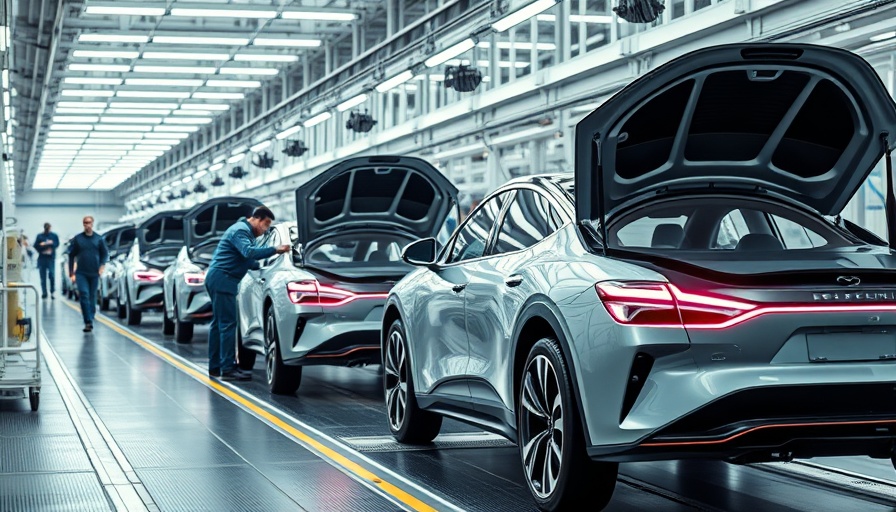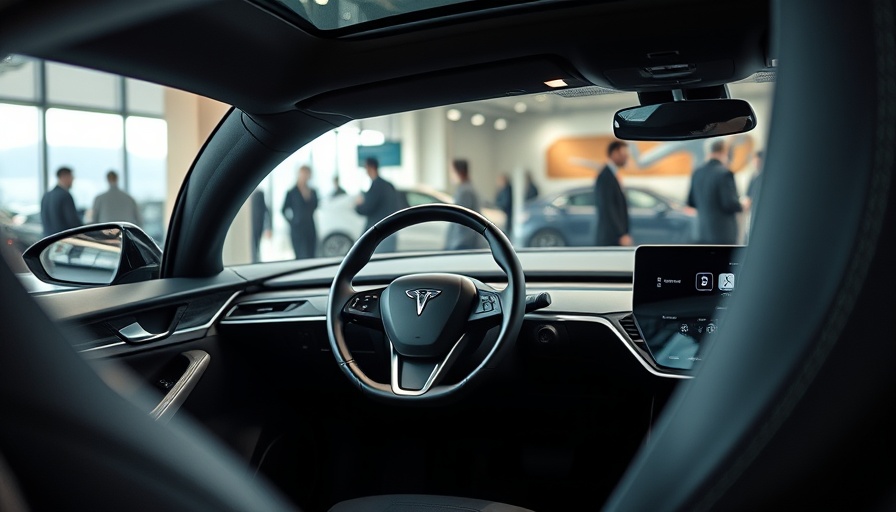
The Complex Landscape of U.S. Clean Energy Transition
As the U.S. energy landscape evolves, it faces challenges and opportunities in equal measure. The year 2025 has witnessed billions in cancelled renewable energy projects, primarily due to a shift in federal energy policy and decreased investor enthusiasm. Yet, amidst this struggle, a new wave of corporate and local players are emerging, promising to invigorate the nation’s transition toward a sustainable future.
Why Corporate Sustainability Matters Now
Corporate sustainability initiatives are crucial during times of uncertainty. Businesses that invest in clean energy not only reduce their carbon footprint but also create jobs and stimulate local economies. For instance, the electric vehicle (EV) manufacturer Rivian continues to bolster its manufacturing base in Illinois, investing heavily in a supply chain hub that complements its expansive production capabilities in the state. This showcases how corporations can drive sustainable innovation even amid broader market retractions.
Rising from the Ashes: New Projects and Innovations
Despite the backdrop of cancellations, hope remains firmly rooted in the clean energy sector. Recent project announcements indicate resilience, with $444 million invested in eight new initiatives, notably in high-powered transformers that enable modernized electricity grids. Such investments are essential not only for supporting growing demands from data centers but also for accommodating the surge in renewable energy and EV adoption.
Small Innovations Making Big Impacts
Alongside giants like Rivian, smaller companies are making significant strides in the clean energy sector. For example, Canadian manufacturer Damera’s $31.5 million commitment to build an electric mini-bus factory in Illinois signifies the expanding landscape of sustainable transport options. The emergence of a solar panel recycling facility in New Jersey is another testament to the proactive approach toward sustainability goals, reflecting the interconnected nature of clean energy initiatives.
The Role of Innovation in Urban Farming
As the industry grows, urban farming is increasingly being recognized as a socially-conscious alternative that aligns with sustainability goals. Businesses incorporating solar-powered technologies to support urban agriculture not only enhance food security but also contribute to reducing fossil fuel dependence. The potential for collaborations between eco-lodges and urban farming initiatives can inspire guests to embrace more sustainable lifestyle choices during their stay.
Looking Ahead: The Future of Clean Energy
While current policies may dampen some investor enthusiasm, the future of clean energy offers a horizon filled with promise. New approaches to funding and innovation are being explored, including off-grid solar solutions that empower small-scale operators. As entrepreneurs in the boutique hospitality sector adopt green technologies and practices, they become influential players in the clean energy transition narrative.
With the ongoing changes in U.S. energy policies, the onus is on industry players to push for sustainable measures and practices that not only fulfill their corporate responsibilities but also resonate with eco-conscious consumers. Stakeholders must focus on actionable insights that create thought-provoking new perspectives on energy consumption.
Take Action: Your Role in Sustainability
For boutique hospitality professionals, now is the time to embrace sustainability within your businesses. Consider integrating off-grid solar systems or engaging in local urban farming partnerships. Small steps can lead to larger changes that resonate well with your clients' values. The collective impact can contribute significantly to the U.S. energy transition and towards a greener future. Think about how your operations can align with these emerging trends and what unique offerings you can provide that not only enhance guest experiences but also contribute to a sustainable world.
 Add Row
Add Row  Add
Add 




Write A Comment